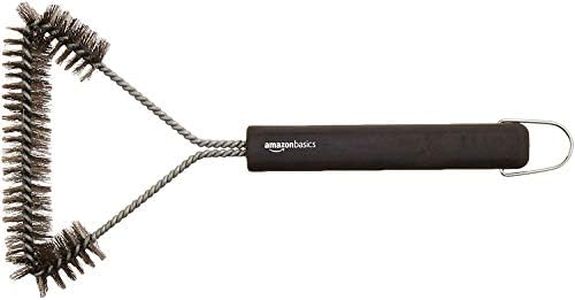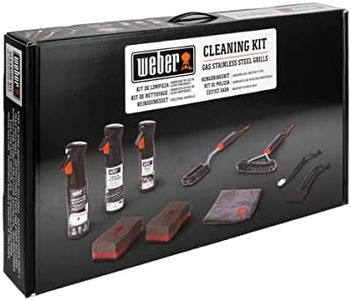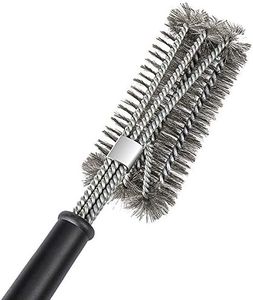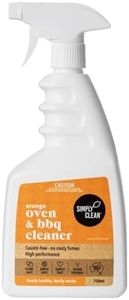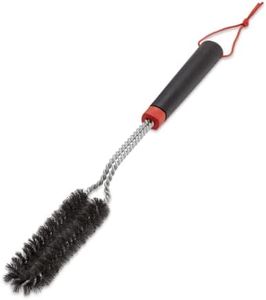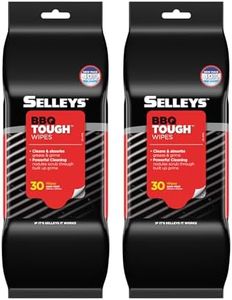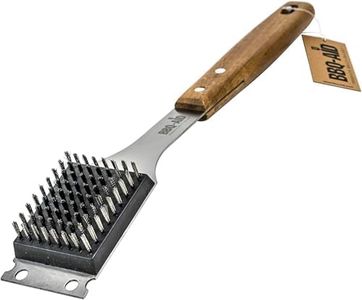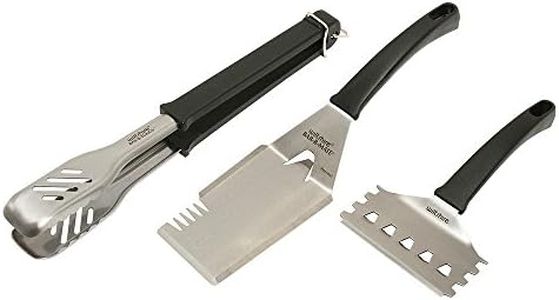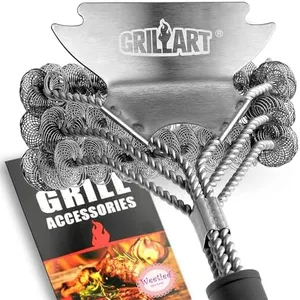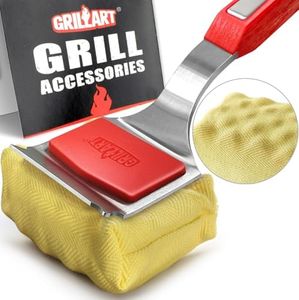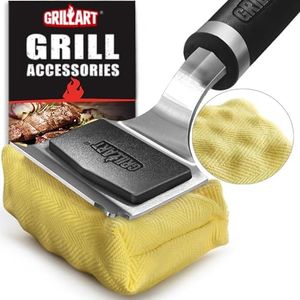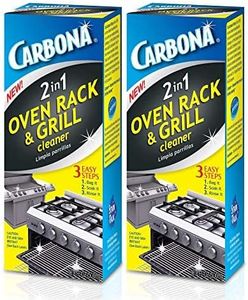We Use CookiesWe use cookies to enhance the security, performance,
functionality and for analytical and promotional activities. By continuing to browse this site you
are agreeing to our privacy policy
10 Best Grill Cleaners
From leading brands and best sellers available on the web.By clicking on a link to a third party's website, log data is shared with that third party.
Buying Guide for the Best Grill Cleaners
Choosing the right grill cleaner can make maintaining your grill much easier, prevent food contamination, and extend the life of your equipment. When shopping for grill cleaners, it's important to understand the types available, their safety, effectiveness, and how they match your cleaning needs. Think about the kind of grill you have, how often you cook, and whether you want something quick and easy or a deeper clean after heavy use.Type (Spray, Foam, Wipes, Brushes, Natural)This refers to the form the grill cleaner comes in—liquids (like sprays or foams), cleaning wipes, scrubbing brushes with cleaner built in, or natural-based solutions. The type is important because it affects how easy and thorough the cleaning process will be. Sprays and foams are good for covering large surfaces and penetrating tough grime, wipes are handy for quick touch-ups or travel, brushes with cleaner are ideal for scrubbing grates, and natural options are better if you prefer non-toxic ingredients. If you grill frequently and need deep cleaning, sprays or foams may be most effective; for occasional or light use, wipes or natural solutions may suffice.
Ingredients/SafetyIngredients indicate what chemicals or substances are used in the cleaner, affecting both safety and effectiveness. Grill cleaners can contain harsh chemicals that break down grease quickly but may leave residues or fumes. Others are biodegradable or non-toxic, safer especially if you're concerned about food safety or children and pets. Check if the cleaner is safe for use on food-contact surfaces, and if you have sensitivities, look for labeled non-toxic options. Choose a cleaner in line with your comfort level about harsh chemicals and with any allergies or health concerns in mind.
Compatibility (Grill Material)Compatibility describes what materials the cleaner can be safely used on, such as stainless steel, porcelain, cast iron, or chrome. Some formulas or brushes might damage certain surfaces—strong abrasives, for example, can scratch porcelain grates. Look for cleaners specifically marked for your grill's main material to avoid unnecessary wear or damage, as using the wrong type may reduce your grill’s lifespan or alter its appearance. Always match the cleaner to your grill’s build for best results.
Cleaning Power/EfficiencyCleaning power tells you how effective the product is at removing tough grease, burnt-on food, and carbon build-up. Products may range from light degreasers to heavy-duty grime removers. If you cook greasy foods or frequently have stubborn residues, opt for strong cleaners that promise deep cleaning; for everyday maintenance after simple grilling, milder options might be enough. It's a balance between convenience and the level of mess you typically encounter.
Ease of Use/ApplicationEase of use covers how simply and quickly you can apply and remove the cleaner. Fast-acting sprays and pre-moistened wipes are quicker to use but might not be as powerful as solutions that need more time to work. Consider if the application process fits into your routine—do you want something quick after each use, or do you set aside time for deep cleaning? Also, think about whether a product needs rinsing—some require lots of water after application, while others are wipe-and-go.
Odor/ScentOdor or scent is about whether the grill cleaner leaves a strong smell behind. Some cleaners have powerful chemical odors, while others are fragrance-free or use natural scents like citrus. If you are sensitive to smells or want to avoid lingering scents on your grill, opt for low-odor or fragrance-free options. This is especially important if you plan to cook soon after cleaning.



